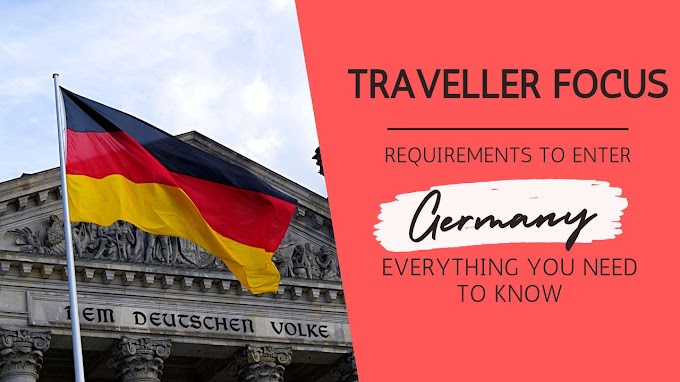Is Germany Open for Tourism?
Germany is one of the most popular tourist destinations in Europe, renowned for its rich history, diverse culture, stunning architecture, and vibrant cities. In recent years, however, the country has faced a number of challenges that have impacted its ability to welcome tourists from around the world.
As a result, many travelers are wondering if Germany is open for tourism and what the current state of the country's travel industry looks like. In this comprehensive article, we will take an in-depth look at the current status of tourism in Germany and what travelers can expect when planning a trip to the country.
The Impact of the COVID-19 Pandemic on Tourism in Germany
Like much of the world, Germany has been greatly impacted by the COVID-19 pandemic. The country has implemented a range of measures to control the spread of the virus, including lockdowns, travel restrictions, and mandatory masks in public spaces.
As a result of these measures, the tourism industry in Germany has been severely impacted. In 2020, the number of international tourists visiting the country declined by over 75%, leading to significant economic losses for the country's travel and hospitality sectors.
However, as the world begins to recover from the pandemic and vaccination rates rise, the country is slowly starting to reopen its borders and welcome tourists back.
Current Travel Restrictions in Germany
As of February 2022, travelers from countries within the European Union and Schengen Area are able to enter Germany without restrictions. Travelers from other countries may face some restrictions, depending on the current level of COVID-19 transmission in their country of origin.
All travelers entering Germany, regardless of their country of origin, are required to show proof of a negative COVID-19 test taken within 48 hours of their arrival in the country. Travelers may also be required to undergo a quarantine period, depending on the current level of COVID-19 transmission in their home country.
What to Expect When Visiting Germany During the Pandemic
While the country is slowly starting to reopen, travelers can expect some changes to their experience when visiting Germany during the pandemic. Many attractions, including museums and historic sites, have limited capacity to ensure social distancing measures are maintained.
In addition, many restaurants and bars have shifted to offering outdoor seating and take-out options, in order to reduce the risk of transmission. Travelers can also expect to see increased hand sanitizer stations and mandatory mask requirements in public spaces.
Despite these changes, Germany remains as stunning as ever and offers a range of unique experiences for visitors. From exploring its vibrant cities to discovering its rich cultural heritage, there is something for everyone in this beautiful country.
Planning Your Trip to Germany
As with any trip, it is important to plan ahead and be prepared for changes to your itinerary. Travelers are encouraged to check the latest information on travel restrictions and entry requirements before departing for their trip.
In addition, travelers should be aware of the current level of COVID-19 transmission in the country and take appropriate precautions, such as wearing a mask and practicing good hygiene, to protect themselves and others.
It is also recommended to book accommodations in advance, as many hotels and other forms of accommodation may have limited availability due to reduced capacity.
FAQs
Here are some frequently asked questions about visiting Germany during the COVID-19 pandemic:
What is the Current Status of Tourism in Germany?
The COVID-19 pandemic has had a profound impact on the global tourism industry, and Germany is no exception. However, the situation in Germany is changing rapidly, and it's important to stay up-to-date with the latest information. Currently, Germany is open for tourism, but there are several restrictions in place to curb the spread of the virus.
What Are the Restrictions for Tourists in Germany?
While Germany is open for tourism, visitors should expect to face several restrictions, including:
- Travel restrictions: Some countries are banned from entering Germany due to high rates of COVID-19 transmission. Check the latest information from the German Federal Foreign Office before booking your trip.
- Testing requirements: Visitors to Germany are required to provide proof of a negative COVID-19 test taken within 48 hours of arrival.
- Quarantine requirements: If you arrive from a high-risk area, you may be required to quarantine for 10 days.
- Mask requirements: Wearing a mask is mandatory in many public places in Germany, including public transport, shops, and restaurants.
- Social distancing requirements: Visitors are expected to maintain a distance of at least 1.5 meters from others in public places.
How Can You Stay Safe When Visiting Germany?
While the restrictions in place in Germany may be an inconvenience, they are designed to keep you and the local population safe. Here are some tips to help you stay healthy and safe during your trip:
- Follow the rules: Make sure you understand and follow all of the restrictions in place in Germany.
- Wear a mask: Wear a mask in public places and when you're unable to maintain a safe distance from others.
- Wash your hands regularly: Make sure to wash your hands frequently with soap and water for at least 20 seconds.
- Avoid large gatherings: Try to avoid large gatherings, such as concerts and festivals, to reduce the risk of exposure to the virus.
What Are the Must-See Attractions in Germany?
Germany is home to a wealth of stunning attractions, including:
- The Brandenburg Gate: This iconic landmark is located in the heart of Berlin and is a symbol of German history and unity.
- Neuschwanstein Castle: This fairy-tale castle in Bavaria was the inspiration for Disney's Sleeping Beauty Castle and is a must-see for any visitor to Germany.
- The Black Forest: This picturesque region in southwestern Germany is known for its rolling hills, pristine lakes, and dense forests.
- The Oktoberfest: This annual beer festival in Munich is one of the largest and most famous in the world, attracting millions of visitors each year.
Conclusion:
Germany remains a popular tourist destination, despite the challenges posed by the COVID-19 pandemic. With the country slowly starting to reopen, travelers can once again experience its rich culture, vibrant cities, and stunning architecture.







